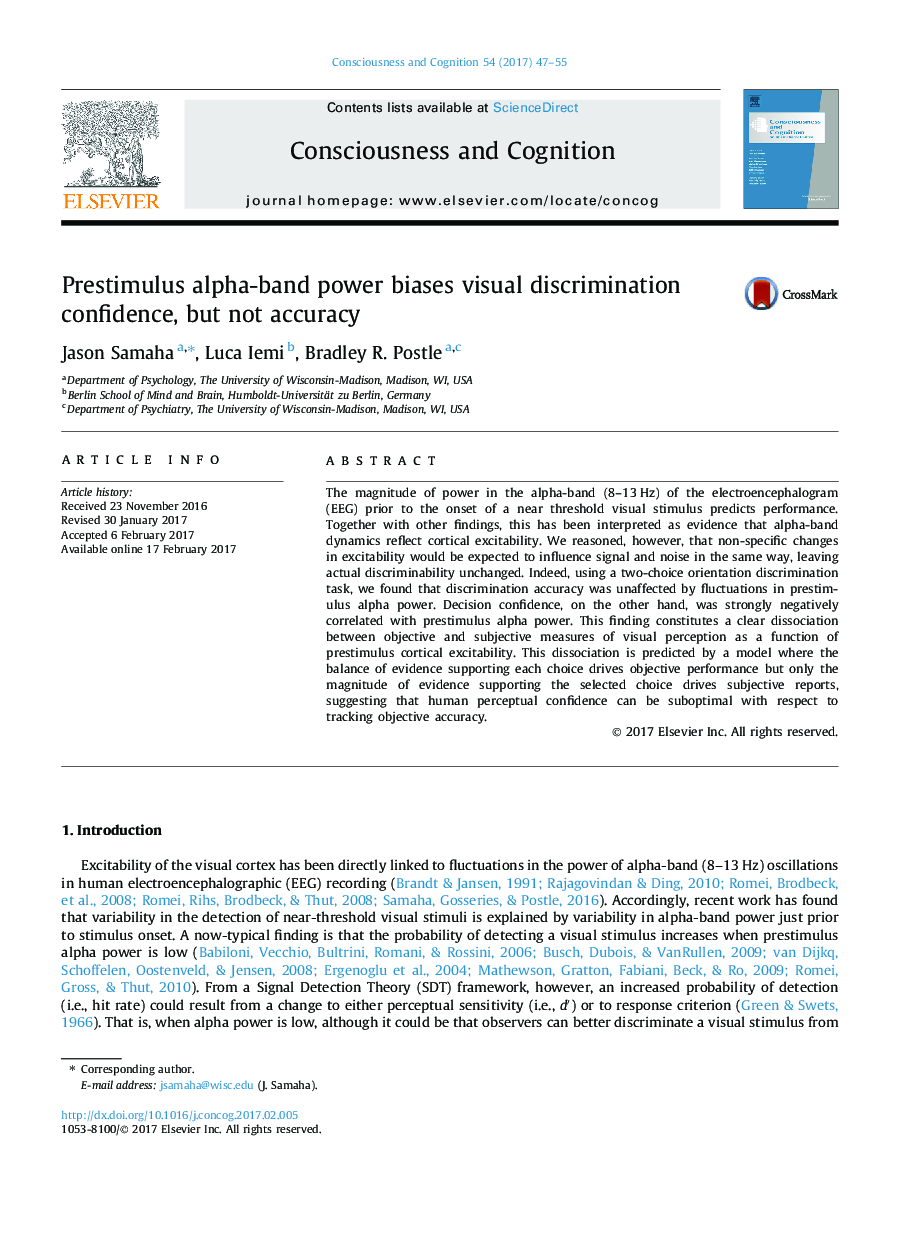| Article ID | Journal | Published Year | Pages | File Type |
|---|---|---|---|---|
| 5041722 | Consciousness and Cognition | 2017 | 9 Pages |
â¢Prestimulus alpha power is unrelated to visual discrimination accuracy.â¢However, lower alpha power induces higher subjective confidence ratings.â¢Cortical excitability differentially impacts subjective and objective perception.â¢This dissociation occurs from suboptimal use of confidence criterion in a SDT model.
The magnitude of power in the alpha-band (8-13Â Hz) of the electroencephalogram (EEG) prior to the onset of a near threshold visual stimulus predicts performance. Together with other findings, this has been interpreted as evidence that alpha-band dynamics reflect cortical excitability. We reasoned, however, that non-specific changes in excitability would be expected to influence signal and noise in the same way, leaving actual discriminability unchanged. Indeed, using a two-choice orientation discrimination task, we found that discrimination accuracy was unaffected by fluctuations in prestimulus alpha power. Decision confidence, on the other hand, was strongly negatively correlated with prestimulus alpha power. This finding constitutes a clear dissociation between objective and subjective measures of visual perception as a function of prestimulus cortical excitability. This dissociation is predicted by a model where the balance of evidence supporting each choice drives objective performance but only the magnitude of evidence supporting the selected choice drives subjective reports, suggesting that human perceptual confidence can be suboptimal with respect to tracking objective accuracy.
